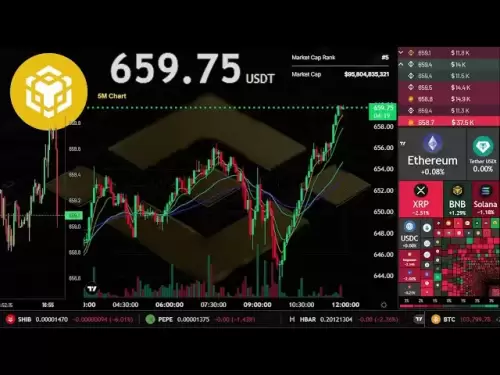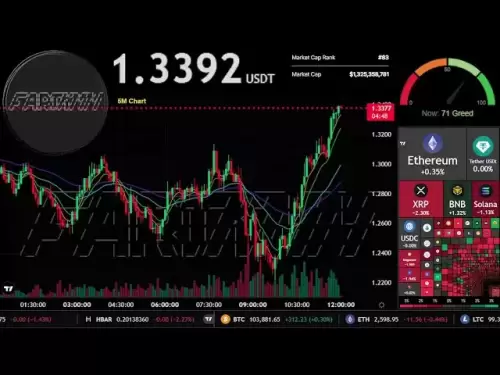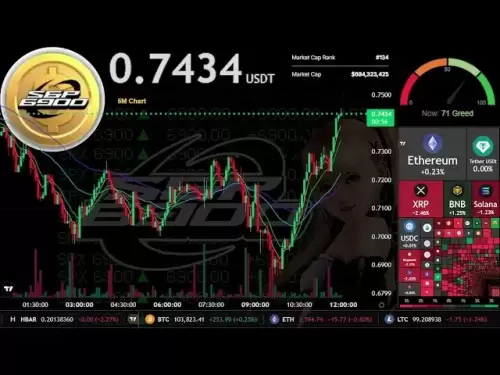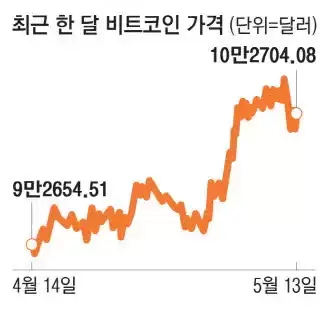 |
|
 |
|
 |
|
 |
|
 |
|
 |
|
 |
|
 |
|
 |
|
 |
|
 |
|
 |
|
 |
|
 |
|
 |
|
Cryptocurrency News Articles
Jim Chanos Is Dumping His MicroStrategy (MSTR) Stock to Buy Bitcoin (BTC)
May 15, 2025 at 11:20 pm
Veteran investor Jim Chanos has revealed that he is offloading Strategy's stock while simultaneously buying bitcoin ( BTC).

Veteran investor Jim Chanos has revealed that he is selling Strategy (NASDAQ:MICRO) stock and buying bitcoin ( BTC) as he sees the company's approach being risky and fueled by retail enthusiasm.
This aligns with the thinking of Peter Schiff, who has been advising people to buy BTC rather than Strategy stock.
Veteran Investor Selling Strategy to Buy Bitcoin
The former hedge fund magnate said that his firm is selling Strategy stock and buying bitcoin as he sees the company’s stock price getting inflated due to its large bitcoin holdings.
Speaking on CNBC, Chanos said that his firm is selling Strategy stock and buying bitcoin.
“We’re doing exactly what MicroStrategy and Michael Saylor are doing. We’re selling MicroStrategy stock and buying bitcoin and basically buying something for $1 selling it for two and a half dollars.”
The goal is to capitalize on what he perceives as an inflated valuation of the company relative to its substantial bitcoin exposure.
This statement comes just days after Strategy made another significant purchase, which brought its holdings to 568,840 BTC.
Known for his successful short-selling track record, Chanos is a seasoned investor with a keen eye for identifying and profiting from market inefficiencies.
Under the leadership of its co-founder and former CEO Michael Saylor, Strategy is increasingly seen by many as a proxy for bitcoin exposure in the stock market.
While the company’s holdings are largely financed through debt, the strategy has resonated with many retail investors, driving Strategy’s share price up by an astounding 220% over the past year. For context, BTC grew by 70% during the same period.
However, Chanos argues that this premium is unsustainable and a product of speculative fervor. He pointed to the emergence of “copycat companies” attempting to emulate Strategy’s strategy, raising capital by appealing to retail investors with the promise of indirect bitcoin exposure within a corporate structure.
“It’s getting ridiculous, copycat companies are doing the same thing. They’re trying to raise money to do the same thing, which is buy bitcoin at a premium within a company structure to sell to retail,” stated Chanos, dismissing this line of thinking.
"If You Want to Buy Bitcoin, Then Buy Bitcoin"
Seemingly in agreement with this sentiment is economist and bitcoin critic Peter Schiff, who has persistently attacked Strategy and the media, which he claims is attempting to prop up the company’s stock.
In his latest salvo, Schiff told his followers to buy bitcoin rather than doing it via acquiring the company’s stock.
“The only thing more ridiculous than buying bitcoin is buying shares of a bitcoin 'treasury' company whose sole business purpose is to acquire bitcoin. If you want to buy bitcoin, then buy bitcoin. If you want to invest in the stock market, buy a company with an actual business,” he stated.
Schiff’s assessment aligns closely with Chanos’s core argument that Strategy’s value proposition as a bitcoin proxy is fundamentally flawed. Both investors suggest that individuals or institutions seeking exposure to bitcoin should simply purchase the cryptocurrency itself.
Instead of paying a premium for a company whose primary asset is the digital currency, they advise investing in entities with intrinsic value and the potential for earnings generation.
"They're buying bitcoin at a premium within a company structure to sell to retail. And if you want to buy bitcoin, buy bitcoin. If you want to invest in the stock market, buy a company with an actual business," stated Schiff.
This convergence of opinion between a seasoned short-seller like Chanos and a vocal bitcoin critic like Schiff might place an interesting spin on the whole matter.
As the chairman and CEO of the company, Saylor has led Strategy on a bold venture to accumulate a significant stash of bitcoins.
Despite an initial investment in 2015, the company's journey into cryptocurrency began in earnest in 2019 with an initial purchase of 250 bitcoins. Since then, Strategy has been consistently adding to its digital asset reserves.
In 2020, the company sold a portion of its stock to fund the purchase of more bitcoins, and it has continued to do so throughout 2021 and 2022.
This strategy might be seen as an unconventional one, especially considering that Strategy's core business is software technology.
However, Saylor maintains that the company's bitcoin holdings represent a unique opportunity for investors to participate in the cryptocurrency market.
"We are making a new market in the United States. We are offering a way for institutions and individuals who cannot invest in bitcoin to nevertheless participate in the unrvalled returns of bitcoin through a publicly traded company," said Saylor.
Despite this assertion, an increasing number of established investors are expressing skepticism regarding Strategy's bitcoin-driven approach.
Disclaimer:info@kdj.com
The information provided is not trading advice. kdj.com does not assume any responsibility for any investments made based on the information provided in this article. Cryptocurrencies are highly volatile and it is highly recommended that you invest with caution after thorough research!
If you believe that the content used on this website infringes your copyright, please contact us immediately (info@kdj.com) and we will delete it promptly.
-

-

-

-

-

- JPMorgan analysts say Bitcoin could outperform gold in the year's second half
- May 16, 2025 at 10:10 am
- input: JPMorgan analysts, led by managing director Nikolaos Panigirtzoglou, reported that Bitcoin could outperform gold in the year's second half. The analysts argued that the digital asset will gain ground against gold, driven by rising corporate demand and growing support from U.S. states.
-

-
![Pi Network [PI] launches a $100M venture fund, targeting AI, fintech, and Web3 startups Pi Network [PI] launches a $100M venture fund, targeting AI, fintech, and Web3 startups](/assets/pc/images/moren/280_160.png)
-

-

























































